
When vacationing in nature, it’s only right to think about bringing your pet along with you to enjoy the great outdoors. Before planning your visit to a national park, make sure you thoroughly research the pet policy of the park or parks you plan to visit so that you are not caught off guard.
There are 63 national parks in the United States. Truly pet-friendly parks are the ones that allow pets in most areas of the park where people are allowed, such as trails and overlooks; however that is not always the case. While most national parks tolerate pets in some capacity, some strictly restrict pets to certain areas such as parking lots, campgrounds, or roads. This is often for the safety of both the pets and the other wildlife in the park.
At pet-friendly national parks, the National Park Service (NPS) has a set of guiding principles called B.A.R.K.:
Some even offer park ranger-led programs through which your dog can become a “B.A.R.K. ranger.”
In addition to the basic principles, NPS has a set of more thorough regulations that apply to all parks. Among these rules, pets are banned indoors (excluding service animals), prohibited from making unreasonable noise for the location (e.g. excessive howling or barking that impacts other visitors or wildlife), and owners cannot leave pets tied up unattended.
On top of the nationwide regulations, many individual parks have specific rules and regulations, especially related to where pets are allowed. The most strict parks may restrict pets to developed areas like parking lots only (including pets who are held or in carriers), but even the most pet-friendly parks likely have some restrictions as well, such as prohibiting pets on especially challenging trails, like the Old Rag hike in Shenandoah National Park.
NPS has an interactive map users can click to read about the pet policies of the different national parks as well as hundreds more national monuments, battlefields, nature preserves, and other historic areas.
Based on these rules, the following are some of the most welcoming national parks for pets:
Traveling with your pet can be enriching for both pet and owner and an opportunity to bond, but preparation is key to a successful visit to a national park.
A lot of parks have heavy restrictions related to pets, so it’s important to think through if it’s worth bringing your pet with you. If you choose to bring them, you may be limited in what activities you can participate in and places you can stay.
Knowing the specific rules of the park you plan to visit is crucial for enjoying yourself and respecting the national parks. Disobeying the rules could end up being harmful to wildlife, other visitors, or even your pet.
In addition to traveling with basic items like food, water, treats, and toys, it’s important to be prepared for different scenarios on your trip. You should travel with a pet first aid kit and make sure you have your pet on the proper flea, tick, and heartworm medications to prepare for extended time outdoors. Also, think through what you will do if you want to do one of the hikes or activities where pets are not allowed. Do you have a backup plan for your pet?
You will be held responsible for your pet’s behavior, so make sure to keep them in check. Practicing basic commands and manners in public before your trip can make a world of difference once your pet is in an usual place.

Exploring the Different Types of Pet-Friendly Beaches
Are you looking for pet-friendly beaches? Learn about the different types of pet-friendly beaches, their locations, and tips for visiting them with your pet.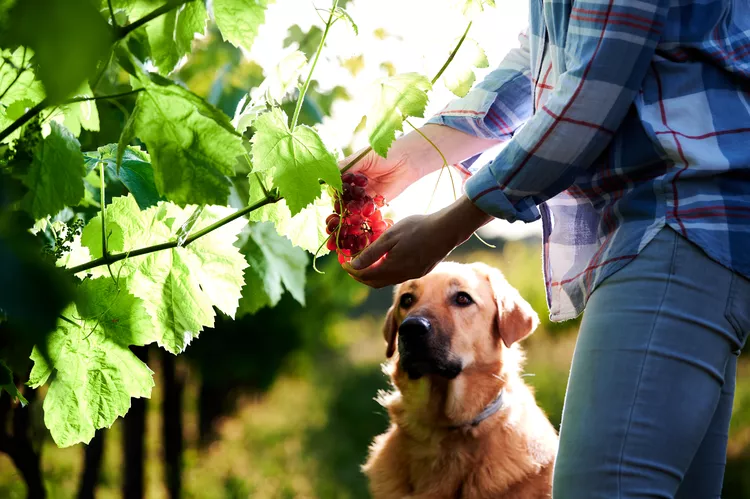
Exploring Pet-Friendly Wineries: Types, Locations, and More
Discover the different types of pet-friendly wineries, where to find them, and what to expect when you visit. Learn more with The Spruce Pets.
Why Is My Dog’s Eye Swollen?
If your dog's eye is swollen, she may need veterinary attention. The inflammation could be caused by allergies, an injury, or even a tumor.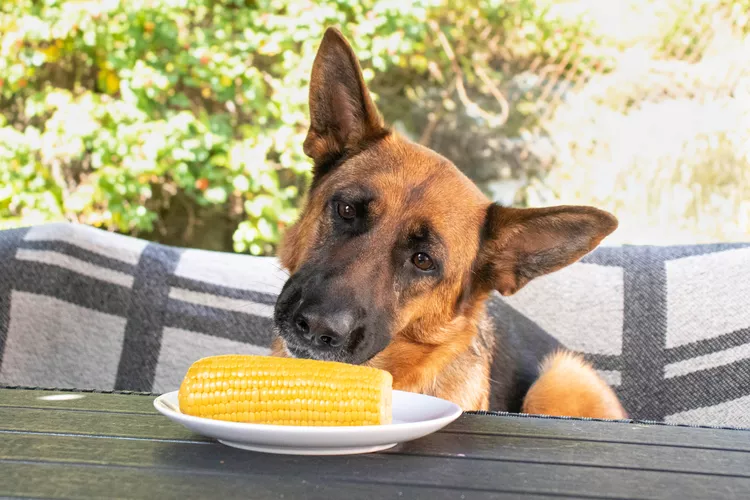
Can Dogs Eat Corn on the Cob?
Dogs love chewing on corn cobs, but this can cause serious harm. Learn about the dangers of corn cobs and find out what to do if your dog eats one.
Can Dogs Eat Papaya? What to Know About Sharing This Tropical Fruit With Your Pup
Papaya is safe for dogs in moderation, and it can even provide some nutritional value for them. However, too much can cause digestive upset, and it's not suitable to share with dogs with certain health conditions.
65 Irish Cat Names
Irish cat names can pay homage to historical places, local cuisine, famous Irish actors and musicians, or other wonderful aspects of the Emerald Isle.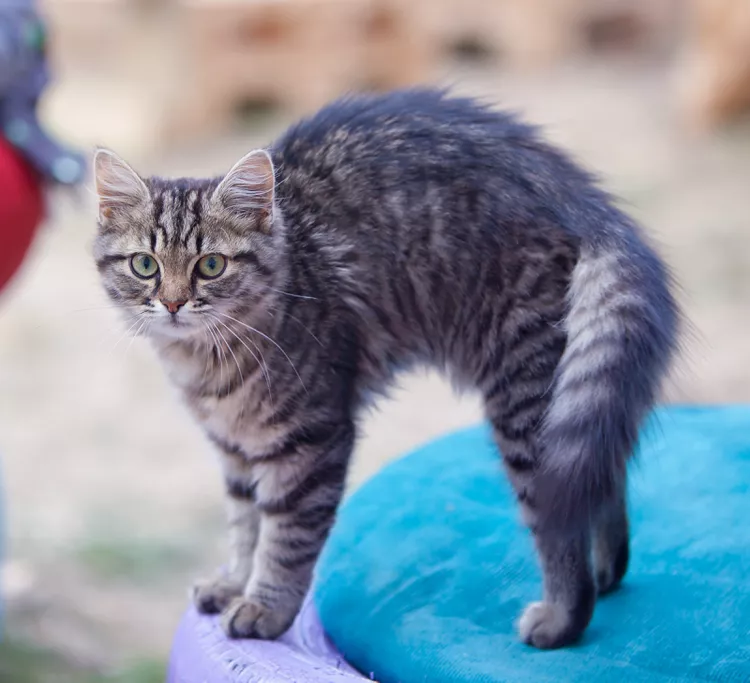
Feline Hyperesthesia Syndrome (FHS) in Cats
Rippling skin is more than dermal sensitivity in cats. It can be a sign of Feline Hyperesthesia Syndrome. Learn the causes, treatment, and prevention.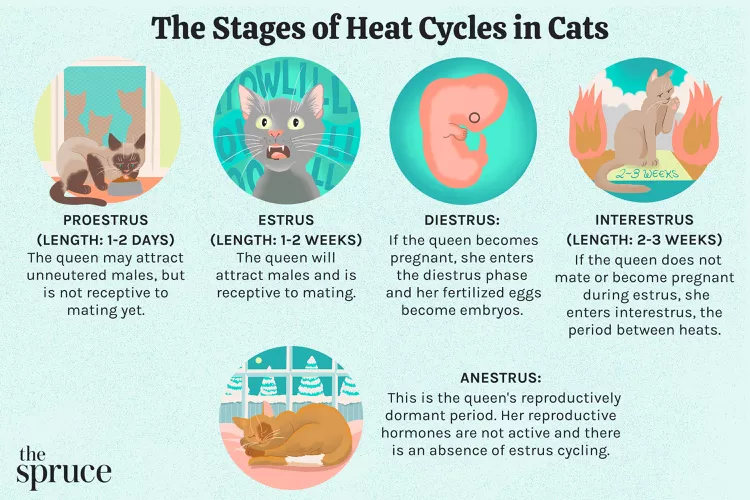
How Long Are Cats in Heat?
How long are cats in heat? Learn about the heat cycles of cats, also called estrus, as well as the reasons you should spay your cat.
Can Dogs Eat Raw Chicken Feet?
What are the potential health benefits of chicken feet for dogs? What are the risks?
Is Eucalyptus Safe for Cats?
Many products containing eucalyptus are not safe for cats, and it is important to be aware of the risks to your cat.
What You Need to Know About Homemade Cat Food
If you want to cook for your cat, make sure to read about the risks associated with homemade diets for cats
Can Cats Eat Peanut Butter?
Peanut butter is not toxic to cats, but it might not be the best choice of treat for them.
Can Cats Eat Cheese?
Can cats eat cheese? Is it healthy for them? How much can they eat and what should you do if you fear your cat has eaten too much cheese?
8 Flat-Faced Cats with the Cutest Smooshed Faces
These flat-faced cat breeds have a distinct and adorable appearance. Learn about their origins and traits, and the potential health risks tied to their unique facial structures.
Pictures and Facts About Bengal Cats and Kittens
Bengal cats are a cross between wild cats and domestic cats. Learn more about what they look like and pictures of this beautiful spotted breed.
Top 10 Big House Cats
Larger cat breeds, like Maine coons and savannahs, deserve just as much love as their petite counterparts. These big house cats tip the scales.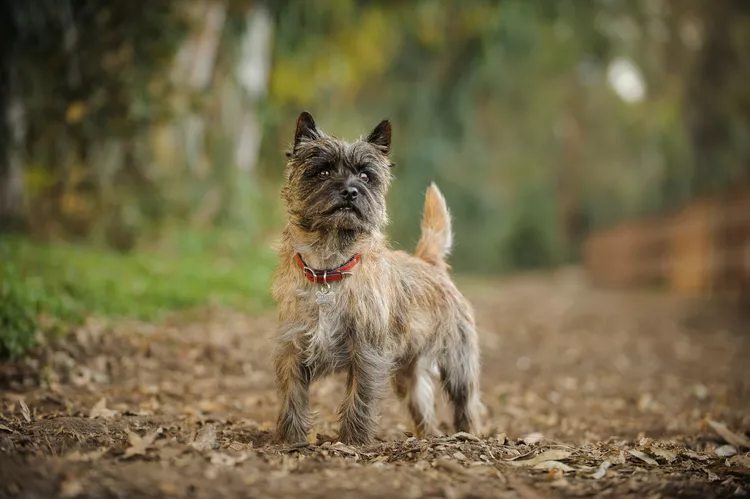
Cairn Terrier: Dog Breed Characteristics & Care
The cairn terrier is a spunky, affectionate, and intelligent dog from Scotland. The breed became famous when one played Toto in The Wizard of Oz. Learn about the temperament, history, health, and care needs of the cairn terrier dog breed.
Reasons Why Dogs Grind Their Teeth
Some dogs grind their teeth. Learn why dogs grind their teeth and if it can be harmful. Find out what to do about teeth grinding in dogs.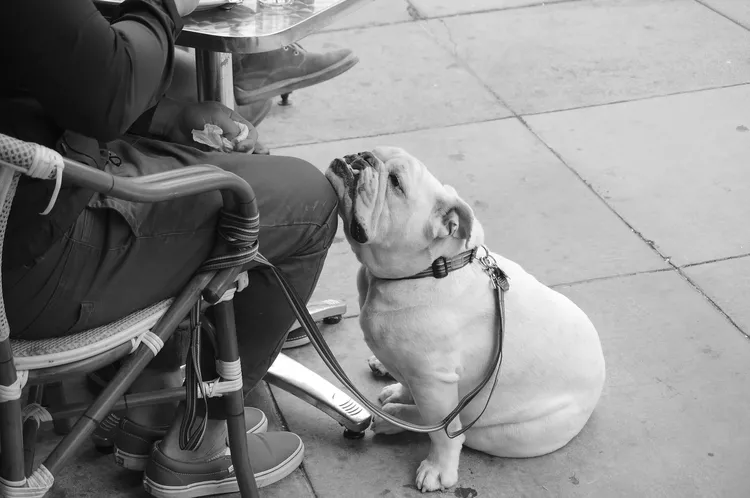
This Is Why Some Dogs Lean on People
Certain dogs really love leaning on their humans. What does this mean? Find out why dogs lean on people and if this is ever a problem.
Can Dogs Get Depression? How to Help Your Sad Dog
Can dogs get depression? Learn about the signs of depression in dogs and find out how to help your sad dog.